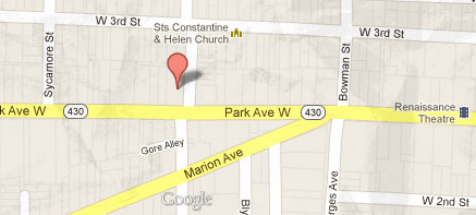What is patience, and tolerance, and how are these things kind? Romans 2:1-4
1You, therefore, have no excuse, you who pass judgment on someone else, for at whatever point you judge another, you are condemning yourself because you who pass judgment do the same things. 2Now we know that God’s judgment against those who do such things is based on truth. 3So when you, a mere human being, pass judgment on them and yet do the same things, do you think you will escape God’s judgment? 4Or do you show contempt for the riches of his kindness, forbearance and patience, not realizing that God’s kindness is intended to lead you to repentance?
Kindness: meeting real needs, in God's way, in His timing (fashion); meeting real needs, in God's way, in His timing (fashion).
Forbearance, tolerance, delay of punishment, restraint: mercy toward
Patience: holding back (right or just) judgment – holding back the sentence of death (only until the time is right)
Repentance – to turn away from sin to God
When we see all the sin and destruction around us, how or why are we to be patient, tolerant, and kind? Because no one does good, no one is righteous, not even one, (Ro 3:10-12) and that includes me. So it is, that as God has been mercifully patient, tolerant, and kind toward me, in my sin (Ro 5:8-10), I am to be and do the same for those whose sin is in front of me. (Ro 10:9-15; 12:20-21; Acts 17:22-34)
Romans 10:14-15 “14How, then, can they call on the one they have not believed in? And how can they believe in the one of whom they have not heard? And how can they hear without someone preaching to them? 15And how can anyone preach unless they are sent? As it is written: “How beautiful are the feet of those who bring good news!”
Aren’t we supposed to tell them about their sin? We are to show them and tell them about Jesus - if they are not of the family of God; and remind a brother or sister of their righteousness in Christ.
We must remember that there is a difference between having sinned and sinfulness
In the end, it is not that we cannot, nor should not, make an approach, in fact, we are supposed to, and they may need us to, as we need them to. It is though, that we are to make an approach with the right heart, the right attitude, the right motive and intentions, and at the right time.
Yes, we should have concern for sin and its effect, but…
It seems very often, we are concerned about the “heart” of another, and although there are times for this, Jesus seems to imply that we should be first, most, and consistently concerned with the condition of our own heart.
Jesus shows us that the condition of our heart, will determine what we say, and do, and our attitude toward others - and how see, think, speak to, and treat them.
Luke 6:45 “A good man brings good things out of the good stored up in his heart, and an evil man brings evil things out of the evil stored up in his heart. For the mouth speaks what the heart is full of.”
We must be careful not to justify or deflect (attention) away from our own sin, by allowing the sin of others to distract us from our need for confession and repentance, our own self-examination, and our responsibility for our own spiritual maintenance.
When in fact, it is the maintenance of our (own) heart that determines our approach.
Do I, will I remember and recognize the debt that I accrued, my absolute inability to pay, and having had it mercifully canceled? This is being in view of God’s mercy…, and be in view of it, we must, or we are in danger of becoming hypocrites.
Parable of the self… leading us rightly into the life and care for another - the art of humility – being in view of God’s mercy, on me, that I might now extend to another. Matthew 7:1-5 (Romans 12:1-2, 9-21; 2Cor 1:3-5)
1“Do not judge, or you too will be judged. 2For in the same way you judge others, you will be judged, and with the measure you use, it will be measured to you.
3“Why do you look at the speck of sawdust in your brother’s eye and pay no attention to the plank in your own eye? 4How can you say to your brother, ‘Let me take the speck out of your eye,’ when all the time there is a plank in your own eye? 5You hypocrite, first take the plank out of your own eye, and then you will see clearly to remove the speck from your brother’s eye.


